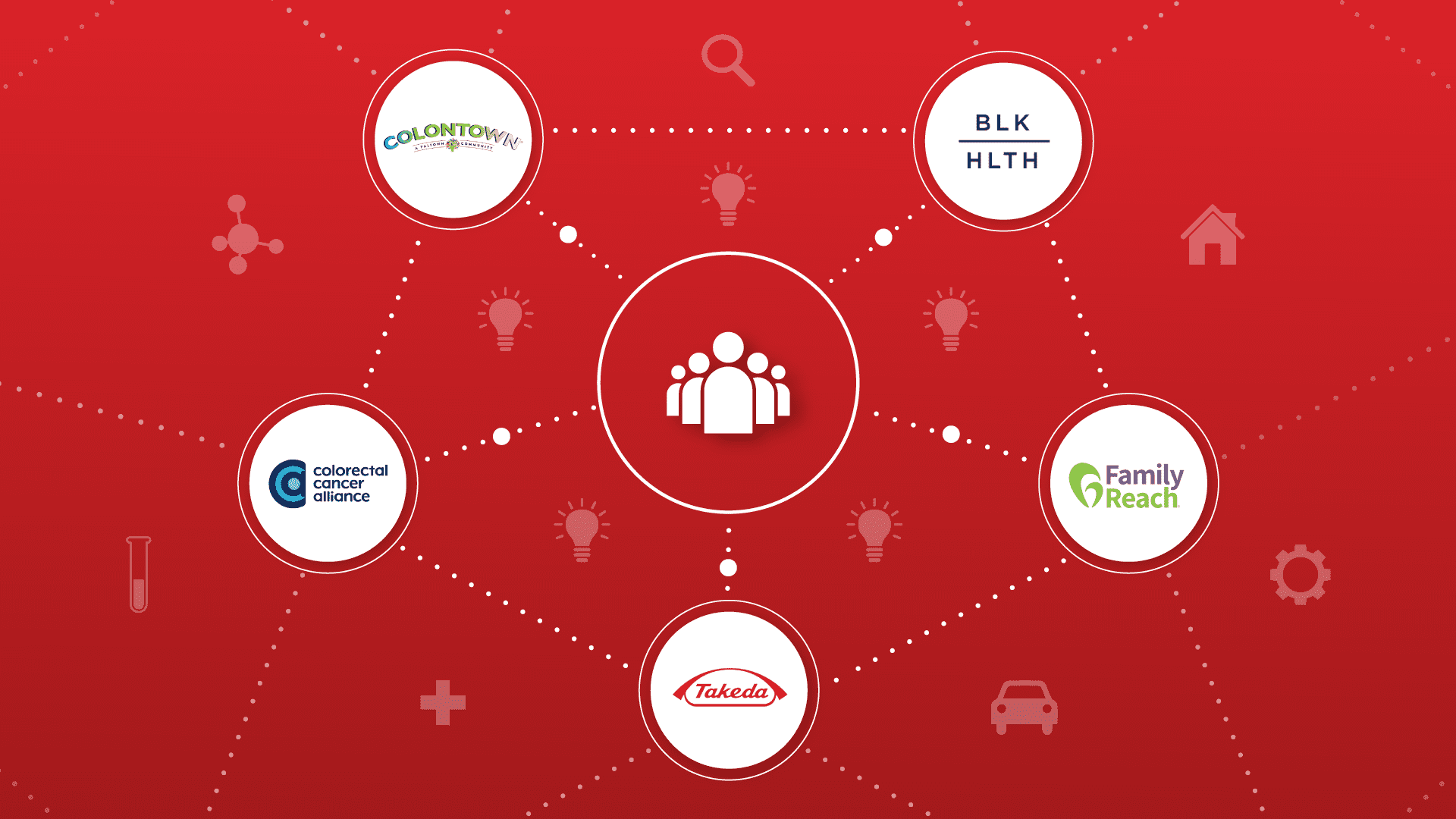Metastatic Colorectal Cancer (mCRC) Education
Colorectal Cancer
Colorectal cancer (CRC) is cancer of the large intestine, which is made up of the colon and rectum. These cancers can also be called colon cancer or rectal cancer, depending on where they start.1 CRC is the third most common cancer worldwide, with about 1 in 10 cancer cases and deaths, as of 2020.2 CRC is the second most common cause of cancer-related mortalities.2 By 2030, CRC is expected to increase by 60%, to over 2.2 million new cases and 1.1 million deaths globally.3 With the global incidence of CRC on the rise, treatment advancements in efficacy and tolerability are vital.
Metastatic Colorectal Cancer (mCRC)
Metastatic colorectal cancer (mCRC) can also be referred to as advanced colon cancer or stage 4 colon cancer.4 Metastases – cancer cells that break away from the original tumor, spread through the bloodstream or lymphatic system and form new tumors on different organs – are the main cause of CRC-related mortality. 5,6 mCRC is a highly heterogeneous disease, meaning the disease can affect each patient differently. Given this, there is not a “one-size-fits-all” approach for treatment. Treatment planning and sequencing is critical to ensure patients have the chance to receive all available treatment options.7
Patient Resources for Colorectal Cancer
By listing these resources, Takeda Oncology is not endorsing any particular service or group, and we are not responsible for the content of these sites or services. They are provided here for informational purposes and are not meant to replace your healthcare provider's medical advice.

Understanding Metastatic Colorectal Cancer (mCRC)
Related Stories
The Power of Listening: Advancing Cancer Care Through Patient Insights
The power of listening is not a novel concept and yet, in our fast-paced and ever-evolving industry, it can sometimes be overlooked. We can meet every deadline and implement effective strategies, but if the process does not include listening to and understanding the patient’s point of view, we’ll end up missing the mark.
Beyond Early Detection: Bridging the Gaps in mCRC Support
Beyond early detection: Learn how Takeda Oncology partners with patient advocacy organizations to bridge care gaps in metastatic colorectal cancer support.
Cancer Treatment is More Than Medicine
Cancer treatment extends beyond clinical care. Explore how Takeda Oncology supports patients through mental health, well-being, and holistic approaches to care.
References
- American Cancer Society. What is colorectal cancer? Available at: https://www.cancer.org/cancer/colon-rectal-cancer/about/what-is-colorectal-cancer.html.
- Sung H, Ferlay J, Siegel RL, et al. Global Cancer Statistics 2020: GLOBOCAN Estimates of Incidence and Mortality Worldwide for 36 Cancers in 185 Countries. CA Cancer J Clin. 2021;71(3):209-249. doi:10.3322/caac.21660
- Rawla P, Sunkara T, Barsouk A. Epidemiology of colorectal cancer: incidence, mortality, survival, and risk factors. Prz Gastroenterol. 2019;14(2):89-103. doi:10.5114/pg.2018.81072
- Memorial Sloan Kettering Cancer Center. Treatment for Metastatic Colon Cancer. Available at: https://www.mskcc.org/cancer-care/types/colon/treatment/metastases
- City of Hope Cancer Treatment Centers. Metastatic Colorectal Cancer (stage 4). Available at: https://www.cancercenter.com/cancer-types/colorectal-cancer/types/metastatic-colorectal-cancer
- Vatandoust S, et al. World J Gastroenterol. 2015;21(41):11767-76.
- Loupakis F, Antonuzzo L, Bachet JB, et al. Practical considerations in the use of regorafenib in metastatic colorectal cancer. Ther Adv Med Oncol 2020;12:1758835920956862.




